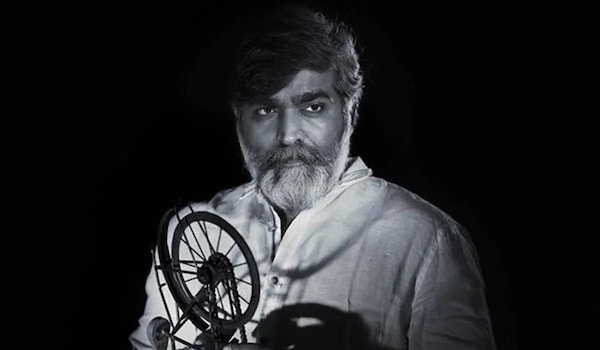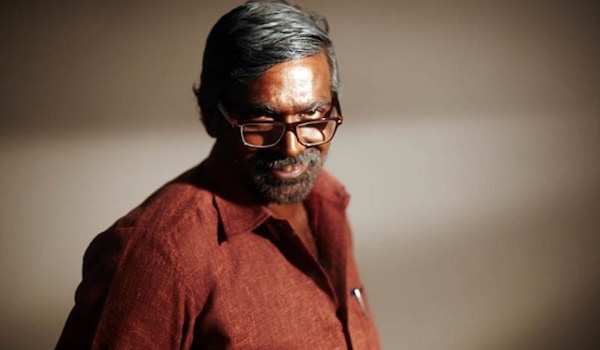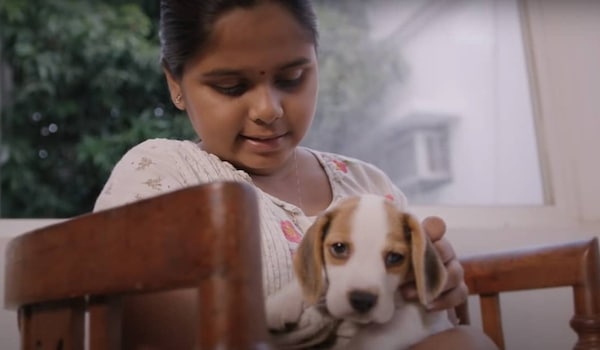Vijay Sethupathi Interview: The day I face camera with overconfidence is when my defeat begins | Exclusive
Maharaja's Vijay Sethupathi opens up about wanting to explore the human psyche through his roles, his emotional acceptance of projects, and that one question for which he is finding an answer.

Last Updated: 03.42 PM, Jun 14, 2024
I was ushered into the waiting room of Vijay Sethupathi’s office on a cloudy evening. It took me by surprise when while I was expecting to see a corporate setup, it was filled with art and memorabilia, which stood as a testament to his spanning career.
Journalists are used to doing interviews in studios, but rarely do you see an office adorned with art and life. It came as a breath of fresh air. Amid a huge framed photo of late filmmaker SP Jhananthan, a Thiruvalluvar bust, some photos of Vijay Sethupathi with his father, and his film posters, was a recreated painting of the actor as Maharaja. It was a pure coincidence, as this conversation took place just before the release of his landmark 50th film, Maharaja.
I was sitting in a room with a pair of love birds, a painting of his character Shilpa, and Vijay Sethupathi, whom I asked, “Do you ever feel burnout or feel that you are stuck in a rut?” This is because the actor has several films in the pipeline.
The Vijay Sethupathi interview
“Of course, sometimes you feel the rut. Sometimes it doesn’t go as you thought it would on sets, due to misunderstandings or a lengthy work schedule. When there is a contradiction between your personal life and film scenes, you may want to leave. But unlike offices, you cannot take a day off. That is because films are expensive, and it is very rare that they will be able to shoot without you. If you are committed, you are bound to work. Otherwise, they might face losses in lakhs,” Vijay Sethupathi says.
Maharaja, karma, and the human psyche
With ‘what goes around comes around' being the tagline for Maharaja and karma being a theme in the film, we talk about Vijay's belief in the concept. “More than karma, I would like to put this in another way. When you are doing a certain action and gradually increasing its velocity, there is a certain reaction that keeps building. It would have gradually grown and it might have been started by you. It will come back to you. No matter how big a person you are, there is always someone above you. If you behave a certain way with someone, it will come out in some other way. At the same time, we are human beings and we make mistakes. There is no way about it, even if we don’t want to make mistakes.”
Beyond the stardom, fame, and artistic pleasures that acting gives him, I ask him if his penchant and selfishness to know how the human psyche works are the reasons he takes on versatile roles. Vijay Sethupathi says, “Yes, you can say that. But I have had the quality of reading people since childhood. It was enhanced when I became an actor. I don’t know if it is because I am an introvert.
So, I ask him if he is an introvert. "Very much,” he says. To which I ask him if he is the only child of his parents. “Nope, I am second. We are four siblings,” he asys. So, was his home filled with competition? "No, there was nothing like that in my house. There have been problems and yearnings, like why couldn’t I study better or if I could have been born into a richer house. Or why I can't speak English, or why our problems cannot be solved. So, there were many questions. Perhaps that is one of the reasons I observed many people and thought about their psyche.”
In search of the 'mental body'
Vijay Sethupathi then speaks about how he became an actor and worked on his body language. “There is a difference between the physical body, which is nothing after memories and awareness are removed from it. The same body, about 20 years ago, did not have the tag of an actor. So, when I am playing a character, I try to understand its mental body.”
So has there been a growth in the mental state of Vijay Sethupathi from Pizza to Maharaja? He tells me that it’s happening with practice. “There can be mistakes that you would have made earlier and you make your calculations from them. Some preconceived notions can change later and you have no logical explanation for them. Such small things give you some understanding of what life is. There is rain, sunlight, seasons change, winds blow, tsunamis destroy, there is breeze, and flowers bloom. You can't change any of it and everything that happens to the earth also happens within us,” the actor adds.
A curious Vijay Sethupathi once came across a poster that read, “What is the purpose of life?”He immediately contacted the number listed on it. “Beyond the purpose of life, I want to know the purpose of birth. I want to be non-existent, and I don’t even know if I will get an answer. But someone would have gotten an answer and thought it was not necessary to share it," he says about why he made the call.
When watching Maharaja, one can recall the Vijay Sethupathi of Super Deluxe and Naduvula Konjam Pakkatha Kaanom in terms of the performances. When I ask him if he follows a particular style for his different characters, he says, “I used to do that, but not anymore. I follow the director’s vision and since projects like Farzi and Merry Christmas, it might have changed. I had an acting coach, Pooja Devariya, and that could be one reason for it. We have been looking for a shift in acting.”
An emotional connection
Vijay Sethupathi had done many films simply because of sentimental and emotional reasons. “I don’t do that now. But I have done it before because the filmmakers helped me in some way. I have only done good films, not what I thought were bad. Some of the films might not have been good, but I know there are some people who like them. In fact, I thought that some of the people that I have worked with would go on to become successful, but that didn’t happen with some. That hurt.”
As the conversation veers towards the trend of celebrating underrated gems that were once disregarded, the actor speaks of Orange Mittai. “I know people who did not feel connected to the film, but there are some who are celebrating it. Many people from my family also did not like it. I remember speaking to Balaji Sakthivel sir about his film Kalloori, which I did not understand when I saw it. But later, I found it interesting. He insisted that audiences are never wrong and that it is always the filmmaker’s responsibility to give a film a palatable form,” he says.
At the same time, speaking about how films sometimes get their due long after their releases, the actor says that if they were not celebrated during their release, he is happy that it is happening now. “Only making a film is not enough. No one will wait for Vijay Sethupathi to make a good film because everyone has their own 1,000 issues. So, our responsibility is to get you intrigued and deliver a film,” he says candidly.

A ray of hope
About hailing from a family who aren’t fans of cinema and having grown up not watching films to being an actor by profession, Vijay Sethupathi says, “I did not expect this change. But this is how I look at it: I prepared a lot to reach this stage. The day I face the camera with overconfidence is when my defeat begins. You look for something to make each interview interesting. I do the same with my scenes.”
He admits that he has very little free time and whatever time he gets, he uses to learn music. “I have a piano and have been learning Carnatic singing for 8 months. I still have a long way to go.”
We then speak about Mugizh, a film in which he acted along with his daughter, Sreeja Vijay Sethupathi. He backed the 60-minute-long film but tells us that it started out as a 20-minute-long story. “My daughter was not supposed to act initially. We had acquired director Karthik’s short film, Idaivelai, since we liked it. It’s on our YouTube channel. When he came to me with Mugizh, I asked if my daughter could act, as I did not want her to feel left out. My son had already acted in Sindhubaadh. As a father, I was very proud of Mugizh and I even made money from the movie. More than anything, my daughter was able to get rid of her complex,” recalls the actor.

Vijay Sethupathi is a strong believer that the execution of a film matters the most and entrusts directors with it. “A director has to be able to pull off a film that will meet the commercial aspects as well as the stakes of everyone involved. When he okays a shot, he has to think of everything.”
The actor firmly holds on to certain ethics, including not advocating regressive beliefs such as patriarchy and misogyny. “If that has happened in any movie of mine, it happened without my knowledge. I am careful about matters about children and how you show them.”
As we conclude our chat, Vijay Sethupathi refuses to choose one film that is close to his heart. “I have special reasons to choose each film. I have the same amount of affection for the films that didn’t do well as I do for those that did,” he says, as he admits that he is a fan of commercial cinema.

 Premium
Premium